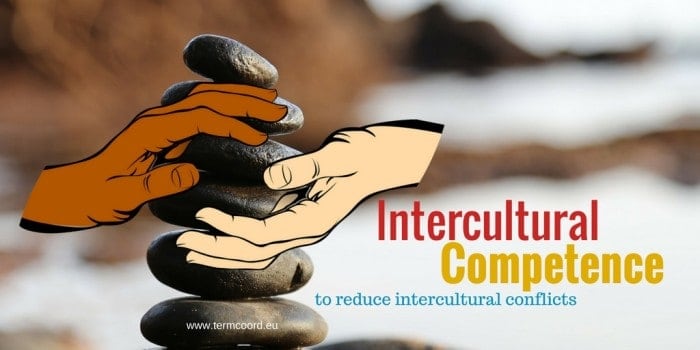It is very common for people to get involved in conflicts. The reasons may be different, but the main problem is a misunderstanding that often arises because people tend to look and judge each other from the perspective of a group to which they belong. The groups can be small like a football team or large as an ethnic community, and each group has its own “culture” that affects the people and determines their behavior – “group self” (Ellemers, N., 2012). In other words, we are speaking of personal identity, which is dependent on many factors: social groups, ethnicity etc.

Culture forms the image of the world people have, and according to which they behave in conflicts. For example, in so-called individualistic cultures (Western cultures), conflicts are regarded as something “normal”, and for the collectivist cultures (Eastern cultures) a conflict is a threat to social harmony. The conflicts (disappointment, competition) may be developed by the members of the “in-group” (e. g., the civil war) or “out-group” (e. g., the World War) (Worchel, S., 2005).

In order to avoid intercultural conflicts, we need Intercultural Competence (IC). This competence opens actually a great range of possibilities: from simple communication with the people who represent different cultures, to peace in the world.
A British linguist, M. Byram, differentiates the two concepts: “Intercultural Competence” (IC) and “Intercultural Communicative Competence” (ICC) (Byram, M., 1997). IC means the ability of a person to understand and interpret the other culture/s without foreign languages, but ICC already requires international communication directly with the foreign language, with a possibility not only to participate in this communication, but also to be an intermediary between two / several cultures. ICC also provides a free and independent choice of information from various multilingual information sources (mass media), which is an important advantage for every person in today’s globalized world. During foreign language teaching it is usually the ICC that is developed.

One big question today is how can the teacher educate in ICC or IC and evaluate the reached level of competence? We leave this question to be explored by scientists and pedagogues. Hopefully the development of IC and ICC will help us to have no, or at least fewer, intercultural conflicts.
Keywords: group self, personal identity, individualistic cultures, collectivist cultures, in-group, out-group, Intercultural Competence, Intercultural Communicative Competence.
Check the whole paper on: Interkulturelle Kompetenz im Konfliktkontext.
You can check other thesis and papers related to terminology published at TermCoord’s website.
 Written by Sofia Pimonova – study visitor from the University of Luxembourg. Studying a MA in Learning and Communication in Multilingual and Multicultural Contexts. She is also enrolled in a MA in Applied Linguistics and Linguodidactics at Tambov State University named after G. R. Derzhavin (Russia). BA in German Philology, she is also a German teacher and a translator. Russian Mother Tongue, fluent in German and learning English and Chinese. Follow her blog about how is the life and her studies in Luxembourg.
Written by Sofia Pimonova – study visitor from the University of Luxembourg. Studying a MA in Learning and Communication in Multilingual and Multicultural Contexts. She is also enrolled in a MA in Applied Linguistics and Linguodidactics at Tambov State University named after G. R. Derzhavin (Russia). BA in German Philology, she is also a German teacher and a translator. Russian Mother Tongue, fluent in German and learning English and Chinese. Follow her blog about how is the life and her studies in Luxembourg.
Sources:
- Byram, M., 1997 Objectives for Teaching, Learning and Assessment, Teaching and assessing intercultural communicative competence.
- Ellemers, N. 2012, The group self. Science 336, 848-852.
- Worchel, S. 2005, Culture’s role in conflict and conflict management: Some suggestions, many questions. International Journal of Intercultural Relations 29, 739–757.
